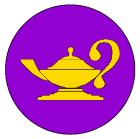





Sallets, Humbles & Shrewsbery Cakes
A critique of the following book was done at the request of one of our artisans. The purpose of which was to identify the suitability of its use as a documentation source within the Adrian Arts & Sciences Guidelines.
Sallets, Humbles & Shrewsbery Cakes, A Collection of Elizabethan Recipes Adapted for the Modern Kitchen, by Ruth Anne Beebe, David R. Godine-Publisher.1976 (Forward by, William Ingram)
To summarize, this book was not found acceptable as a "primary source". The general consensus was that it could be useful as a "tertiary" source as long as there were other sources used and research done to back up the information used from this book.
The key factors that went into this recommendation included:
The book is subtitled "A Collection of Elizabethan Recipes Adapted for the Modern Kitchen." The book was not intended to be a period cookbook but an interesting volume to encourage the reader’s interest in period cooking and serve as a starting point for more in-depth research and experimentation. Follows is a direct quote from the introduction of the book itself:
"All of the recipes in this book issue from four Tudor and Early Stuart cookbooks: Thomas Dawson, 'The Good Huswife's Iewell' (1596), 'The Good Huswife's Handmaide for the Kitchin' (1594), Gervase Markam, 'The English Huswife, Book II of Countrey Contentments' (1615), and John Murrell, 'Delightful daily exercise for ladies and gentlewomen' (1621). In each case, the original version of the recipe appears first with the spelling unchanged, exactly as it was printed. There follows an adapted version, often involving slight but unavoidable compromises to modern tastes. The original recipes, however, are so eminently vague that there are any number of possible interpretations, and I would like to think that by unearthing these recipes I have inspired some readers to experiment on their own. The rendtions given here do work, though, and should serve as guidelines for the less adventurous cook."
"There follows an adapted version, often involving slight but unavoidable compromises to modern tastes." This statement is very important to keep in mind when looking at the adapted versions of the recipes. The purpose of a culinary arts project is to reproduce the original dish as accurately as possible, not make a modern dish that has a "period" flair to it. While there is nothing wrong with this type of cooking for one’s own enjoyment, this type of adaptation has the potential to seriously impact the authenticity of a project during judging if the "compromises" that were made change the original recipe.
While the recipes in this book issue from Tudor and early Stuart cookbooks, each specific recipe does not state which cookbook it came from. Without further research the artisan will not know if the specific recipe being used is out of our time period for arts entries. (See dates of some of these cookbooks).
Some information contained is inaccurate and out of date. As an example: The author is perpetuating the "tired, old myth of spices being used to cover up the taste of bad meat." While this may have been acceptable thinking when the book was published, more recent research shows this not to be accurate.
Also, the introduction states "the original recipes, however, are so eminently vague"… it is the opinion of those who have the book that "all are easy to read and follow."
In conclusion, while this book has its place, it should not be relied on as an "end-all" resource. There are things that need to be verified as to their accuracy, whether acceptable substitutions were made, and most importantly, which of the recipes in the book actually fall in our time period.
If you have to research your research, it may not be the best source to be using.


The Adrian Empire, Inc. | All Rights Reserved.
All other product names are trademarks of their respective owners.